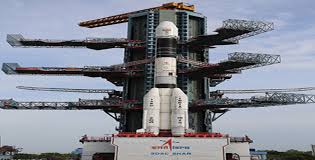
With this launch, ISRO became the sixth space agency in the world after US, Russia, Japan, China and France to have tasted success with an indigenous cryogenic engine.
"I am extremely happy and proud to say team ISRO has done it. The Indian cryogenic engine and stage performed as predicted, as expected for this mission and injected precisely the GSAT-14 communication satellite into intended orbit," a jubilant K Radhakrishnan, ISRO chairman said from the Mission Control Room soon after the launch vehicle placed the 1,982 kg GSAT 14 satellite into the intended orbit.
Launching a GSLV with an indigenous cryogenic engine has been a major challenge for ISRO since 2001 after multiple unsuccessful attempts. Only four of earlier seven attempts have succeeded.
GSLV D5's scheduled launch on August 19 last year was called off in the eleventh hour after a fuel leak, following which ISRO moved the vehicle back to the Vehicle Assembly Building and rectified the defect.
Today's launch is India's eighth flight of GSLV and also the fourth developmental flight of GSLV. During this flight, the indigenously developed Cryogenic Upper Stage (CUS) was flight tested for the second time.
GSAT-14 is India's 23rd geostationary communication satellite, as four of GSAT-14’s predecessors were launched by GSLV during 2001, 2003, 2004 and 2007, respectively.
GSAT-14 would join the group of India's nine operational geostationary satellites. The primary objective of this mission is to augment the in-orbit capacity of extended C and Ku-band transponders and provide a platform for new experiments.
The GSAT-14 will be positioned at 74 degree East longitude and co-located with INSAT-3C, INSAT-4CR and KALPANA-1 satellites.
The 12 communication transponders onboard GSAT-14 will further augment the capacity in the INSAT/GSAT system.
ISRO's Cryogenic Upper Stage Project envisaged the design and development of the indigenous Cryogenic Upper Stage to replace the stage procured from Russia and used in GSLV flights, according to ISRO.
ISRO officials had been extremely vigilant in tightening loose ends this time around to avoid an unsuccessful attempt.
Design modifications were implemented wherever required in the launch vehicle along with thorough ground testing and improvements.
The modifications included redesigning of Lower Shroud, which protects the cryogenic engine during atmospheric flight of GSLV-D5 and redesigning of the wire tunnel of the cryo stage to withstand larger forces in flight.
The national space agency also performed two 'Acceptance Tests for flight unit of Fuel Booster Turbo Pump (FBTP), High altitude tests to confirm the ignition sequence in flight under vacuum, to validate design improvements and Cryogenic Main Engine (200 sec) and Steering Engine (100 sec) acceptance tests at Main Engine Test and High Altitude Test.





Comments
Add new comment